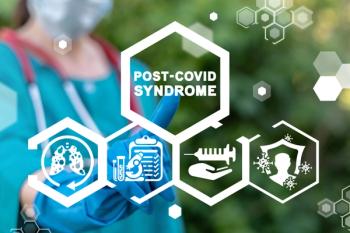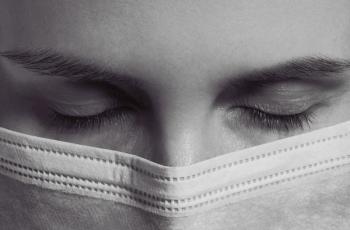
Medical Comorbidities May Increase COVID-19 Mortality Risk in Patients with Psychiatric Disorders
Obesity, antidepressants may also impact risk of death in this population.
A study found that patients with psychiatric disorders who were hospitalized for COVID-19 experienced higher mortality rates, but not due to their underlying psychiatric diseases.
The study, led by Nicolas Hoertel, MD, PhD, MPH, of Paris University and Corentin-Celton hospital at Issy-les-Moulineaux, explored previous research indicating a connection between psychiatric disorders and increased mortality in patients with COVID-19. Hoertel et al conducted an observational multicenter respective cohort study of patients with laboratory-confirmed COVID-19 diagnosis at 36 Greater Paris University hospitals. The study included 15,168 patients who were hospitalized with COVID-19, of whom 857 had also been diagnosed with a psychiatric disorder. Of this population, 59.6% had a substance- or illness-induced psychiatric disorder; 46.4% had a primary psychiatric disorder; and 6.1% had both types of disorders.1
The investigators found that, across a mean follow-up period of 14.6 days (SD=17.9), 38% of patients with a psychiatric disorder died, compared to 8.9% of patients without a psychiatric disorder (OR=6.27; 95%CI=5.40-7.28; p<0.01). This means that individuals with a psychiatric disorder had a sixfold-higher risk of mortality than those without a psychiatric disorder, and this risk remained higher when adjusting for factors such as sex, age, and current smoking status in individual psychiatric diagnoses (AOR=3.27; 95%CI=2.78-3.85; p<0.01). However, when adjusting for obesity and other medical comorbidities, the investigators found no statistically significant association with increased mortality in individuals with psychiatric disorders, as compared to individuals without psychiatric disorders (AOR=1.02; 95%CI=0.84-1.23; p=0.86). Notably, diagnosis of a mood disorder was associated with reduced mortality, which the investigators suggested could be related to use of certain antidepressants, such as fluvoxamine and fluoxetine, which may have anti-inflammatory or antiviral effects.1
The investigators concluded that the risk of COVID-19-related mortality may be higher in individuals with psychiatric disorders due to the overall higher prevalence of obesity and medical conditions in this population—which also increases the risk of developing severe cases of COVID-19—rather than factors related to the psychiatric disorders themselves.1 “Future studies including data on outpatients and inpatients with and without psychiatric disorders and COVID-19, and taking into account main medical risk factors of severe COVID-19 (ie, age, medical comorbidities, and obesity) will be important to determine whether the risk of hospitalization and mortality due to SARS-CoV-2 infection is similar or different across psychiatric diagnoses and psychotropic medications prescribed,” Hoertel et al concluded.
Reference
1. Hoertel N, Sánchez-Rico M, Muela P, et al.
Newsletter
Receive trusted psychiatric news, expert analysis, and clinical insights — subscribe today to support your practice and your patients.







